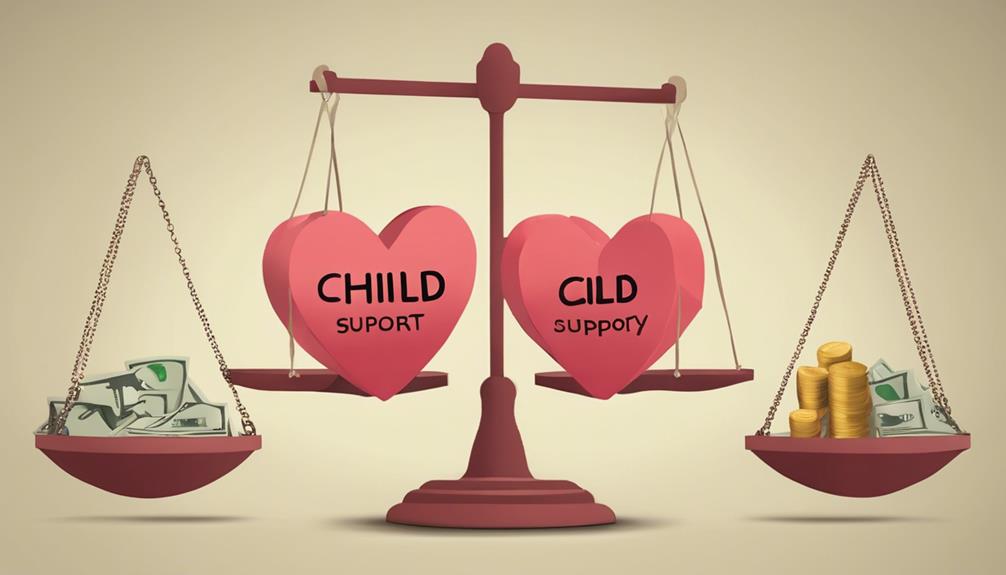The Financial Impact of Divorce: A Comprehensive Guide to Understanding the Consequences
Navigating the nuances of divorce can be daunting, especially when it comes to the financial fallout. From dividing assets and debts to understanding the implications of alimony, child support, and taxes, the aftermath of a split can have a lasting impact on your financial well-being.
But fear not, for with careful planning and knowledge, you can navigate these choppy waters and emerge with a solid financial footing. So, buckle up and prepare to unravel the complexities that come with untangling your finances post-divorce.
Dividing Assets and Debts

When dividing assets and debts during a divorce, consider seeking professional guidance to navigate the complex financial implications.
Begin by listing all assets and debts acquired during the marriage, including real estate, vehicles, investments, and loans. It’s crucial to understand the difference between separate and marital property, as this varies by state.
Work with a financial advisor or mediator to help you make informed decisions about dividing these assets fairly. Remember to update beneficiaries on insurance policies, wills, and retirement accounts to reflect changes post-divorce.
Additionally, close joint accounts and establish individual ones to avoid future financial entanglements. By approaching asset and debt division thoughtfully and with professional support, you can work towards a more secure financial future.
Alimony and Spousal Support

To ensure financial stability post-divorce, understanding the implications of alimony and spousal support is crucial. Alimony, also known as spousal support, is a court-ordered payment from one spouse to the other after divorce or separation.
The purpose of alimony is to help the lower-earning spouse maintain a similar lifestyle to what they had during the marriage. The amount and duration of alimony payments can vary depending on factors such as the length of the marriage, each spouse’s earning capacity, and contributions to the marriage.
It’s essential to consult with a legal professional to understand your rights and obligations regarding alimony to ensure a fair and reasonable outcome.
Child Support and Custody

Understanding child support and custody arrangements is crucial for navigating the financial impact of divorce.
Child support is typically paid by the non-custodial parent to the custodial parent to help cover the child’s living expenses. The amount is determined based on factors like each parent’s income, the child’s needs, and the custody arrangement.
Custody can be joint, where both parents share responsibilities, or sole, where one parent has primary custody. Joint custody arrangements may impact child support calculations differently than sole custody arrangements.
It’s important to understand the legal requirements and financial implications of child support and custody to ensure the well-being of your children and manage your post-divorce finances effectively. Consulting with a legal professional can provide clarity and guidance in this process.
Tax Implications After Divorce

Navigating the financial aftermath of divorce includes considering the tax implications that come into play. When it comes to taxes post-divorce, here are some key points to keep in mind:
- Filing Status: Your filing status changes after divorce. You may now file as single or head of household.
- Child Support and Alimony: Child support isn’t tax-deductible for the recipient, nor is it considered income. Alimony, on the other hand, is taxable for the recipient and tax-deductible for the payer.
- Dependency Exemptions: Understand who gets to claim the children as dependents for tax purposes.
- Asset Transfers: Be aware of the tax consequences when transferring assets as part of the divorce settlement.
Adjusting Your Budget and Lifestyle

Considering the financial changes that come with divorce, it is essential to make adjustments to your budget and lifestyle. One effective way to navigate this transition is by creating a detailed budget that reflects your new financial reality. By outlining your income, expenses, and any alimony or child support payments, you can better understand where adjustments are needed. Here’s a helpful table to guide you through the process:
| Category | Before Divorce | After Divorce | Adjustment Needed |
|---|---|---|---|
| Housing | $2000 | $1500 | Downsize |
| Entertainment | $300 | $150 | Reduce |
| Dining out | $400 | $200 | Cut back |
Conclusion
Overall, divorce can have a significant financial impact on both parties involved. From dividing assets and debts to potential alimony and child support payments, it’s important to carefully consider and plan for the financial changes that come with the end of a marriage.
By understanding the financial implications and making necessary adjustments to your budget and lifestyle, you can navigate this challenging time with greater ease and financial stability.